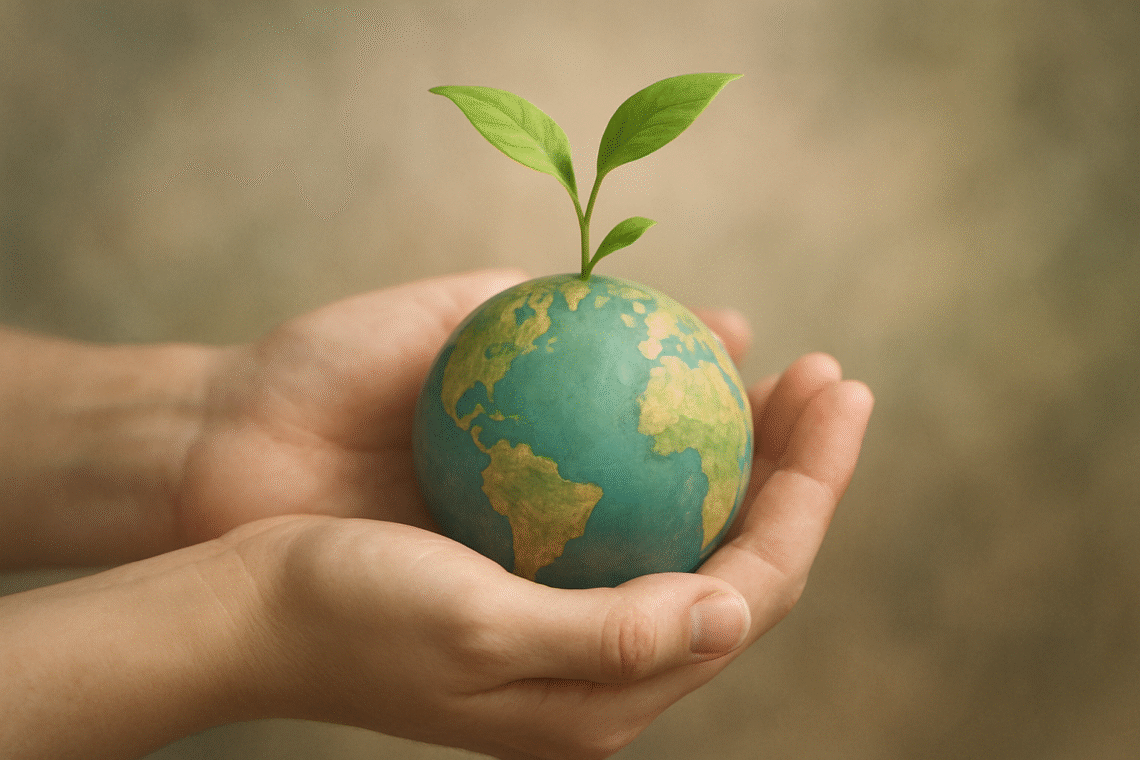If laughter is the appropriate response to our own mortality, then reverence must surely be the response to the mortality of the world itself. For though we flatter ourselves as masters of the earth, lords of creation, captains of industry, and other such blustery titles, the truth is more humbling: our planet is a rather delicate guesthouse, and we its often careless tenants. And like any good guesthouse, it expects us not to kick mud on the carpets, leave our rubbish in the stairwell, or scribble rude words in the visitors’ book.
I sometimes wonder, in quieter moments at the breakfast table, what exactly my nieces and nephews will inherit from us. Oceans choked with plastic straws and rubber ducks from lost shipping containers. Skies thickened not with birdsong but with smoke. Political systems puffed up with hot air, but precious little oxygen for real hope. Not, if we are honest, the cheeriest of bequests. And yet,because one must always add “and yet” if one wishes to be both truthful and bearable,I also see young people rising with unexpected energy, ingenuity, and a most admirable refusal to let despair write the final chapter. They are, in their way, sturdier than many of us, and perhaps less attached to our bad habits. It may yet be that they prove wiser tenants of the earth’s guesthouse than we have been.
The fragility of the world is not, I think, intended to depress us. Fragility, after all, is the precondition of value. We handle a porcelain cup with more reverence than a tin mug, not because the tin is inferior, but because the porcelain asks for something of us, patience, gentleness, and attention. The forests, the rivers, the humming bees in the lavender bush are like that porcelain. Their delicacy is not a flaw but an invitation. It is as though the earth is saying, “Pay attention to me, for I am precious.”
To live well in such a world is therefore to become a custodian, however modestly. It is not only about dutifully rinsing out one’s bottles for recycling (though that is a start and I would be glad if certain of my neighbours took it more seriously). It is also about cultivating a posture of reverence. To pause in the midst of a hurried walk and notice a sunset without whipping out one’s phone to “capture” it. To plant wildflowers not because one is a particularly keen gardener, but because the bees, those small-winged alchemists, require them. To choose, in both deed and speech, not to litter the world with waste or with words that corrode the human spirit. Our stewardship is both ecological and ethical, and the two are more closely linked than we often admit.
When my nieces and nephews think of me in years to come, I would rather they not remember a man who shrugged and muttered, “It’s all too big for me, best to leave it to the experts.” That is the modern excuse for inaction, the spiritual cousin of putting one’s dirty dishes in the sink and saying, “Someone will sort it.” Instead, I hope they remember a man who, in his small corner of time, treated the world as sacred. Who understood that fragility is not weakness, but an invitation to tenderness. Who watered plants, walked lightly, and never made cynicism his creed.
For the truth is, of course, that the world will outlast me. The rivers will continue their murmuring long after I have taken my last sip of tea. The stars will spin in their vast dance without consulting my diary. But while I am here, while breath is in me and days still arrive faithfully each morning, I have the chance to tip the balance,to contribute either to the flourishing of the world or to its diminishment.
I pray, insofar as I have the choice, that I choose the former. That I tread gently, that I add beauty rather than subtract it, that I pass on not only a world but a way of seeing the world as precious. That, I think, would be a contribution worth making. And who knows,perhaps worth remembering too.





